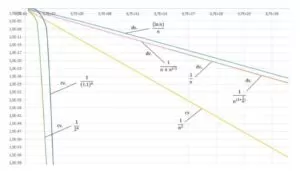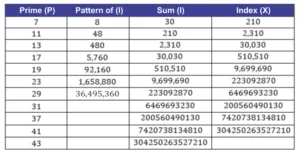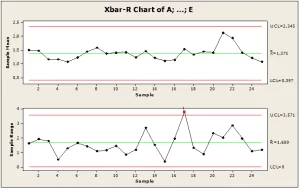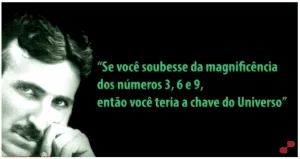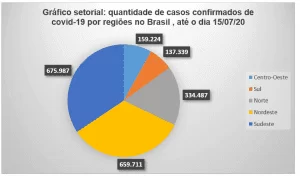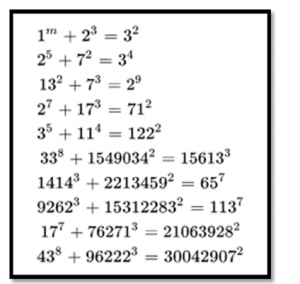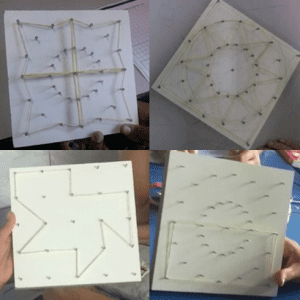CUNHA, Isabela Souza [1]
CUNHA, Isabela Souza. A look at Psychology in mathematics. Multidisciplinary Core scientific journal of knowledge. 07 Edition. 02 year, vol. 03. pp 84-93, October 2017. ISSN: 0959-2448
SUMMARY
The teaching of Mathematics can be worked in a practical way making your study less complex for students of basic education. Many teachers receive teaching materials with great content, but don't take advantage of this opportunity by not knowing how to use or don't have proper planning for your use. The didactics together with mathematics came to enhance and expand the contents clearly, IE, group work or games is a way to facilitate the learning of the students in understanding and solving problems. This work aims to discuss the difficulties that students of basic education in Mathematics along with a field research and references, I intend to show in what way the didactics of problem-solving, of George Polya can promote changes in the current panorama. Through observations in schools or institutions faced with the same information on an ongoing basis, that the work is done in a process of transformation of knowledge, and should be taken seriously, but still don't have a satisfactory result and one of the great effects of research is to know that we are dealing with human beings with difficulties mainly in the area of mathematics and as teachers we must put the plans focused first on the putting in place of each case, assisting at the time so that your failure not turn future frustration and a be with full knowledge.
Keywords: mathematics, Didactics, Problem Situations.
1. Introduction
This article aims to make a panorama on the possible causes of the difficulty of learning in math and show that this course one of the biggest fall of this discontent is not working with the student in class, and teaching practice firing theory and bring the importance of pedagogy, educational psychology and mathematics have to help the student in the classroom.
Today most students coming out of the third year of high school, has unsatisfactory performance when making an entrance exam, contests, or even to the labour market and it is with this look that the income of students can change a job suitable for construction of the knowledge through a differentiated pedagogy capable of working with the mathematical knowledge. Some teachers leaving graduation not know the proper way to work with your student, because the theory is not enough, just don't get many times the didactics is the right word, because the school only has meaning when the teacher has more time to reflect on your performance , and the student learns only when knowledge is housed in your cognitive a transparent clearly.
Is relatively accurate that there is a failure in school mathematics, in this research will give them the opportunity to give grants to teachers answer me what is the best means for this diagnosis does not occur. The entire implementation of the research will support the references, educational and pscicopedagógicas.
It's in the classroom, in the courtyard and in the corridors that students open to pleased to learn, discover the value of friendship and love, reveal the importance of having adults as role models for life. But, it is also in this area who know the hardships of study in abused, suffer from the neglect and contempt of many faculty and staff, get irritated with selfless lessons and exercises meaningless if affli[…]ct realizing that don't speak the same language that your Masters (BENCINI; EDGES, 2007, p. 31)
The biggest motivation for doing this research is that mathematics is the learner's reasoning, problem-solving, but if so, the professional should seek alternatives, we see that is a paradoxical theme very closed where the epistemological system of the subject is not clear like the others Science and it keeps raising of an intelligence that can be achieved at school, because mathematics is used in all fields and the current society understands and sees that it is not necessary to take ownership of the concept of the logical mathematician.
The first objective that the genetic epistemology pursues is, so to say, to get the real psychology and provide verificações on all matters of fact that each epistemology raises necessarily, but replacing the speculative psychology or implied that in general content, through controllable analysis ([…]PIAGET, 1973, p. 13).
How and in what way this issue should be diagnosed and taught to acquire knowledge? As the art of problem solving can encourage the math in the classroom? The culture or same class little planned may intervene bringing an unsatisfactory result?
But, because mathematics brings so much negative reference to the learner? In the first moment can say with clarity that the bad structure with a proper not planning is part of everyday life of the teacher primarily in public schools, but the Faculty hand in hand with the student can change this process, because it depends on the poor-quality education 2 1 the with a professional failure, however the teacher tires of a school system that does not necessary requirements for quality work, where the teacher enters the room and just be content with clarity and your students tired of not receiving a quality education and students not of the.
2. The challenges of teaching mathematics
Since our early years, our parents or teachers cite that failure is something that doesn't work, the human being fails by having no possibilities to do something, but when the tries and does not reach the main purpose, in school the reference is the low note. We can cite numerous possibilities across many content the way that makes the human being fail, however it is necessary that the student make a diagnosis by obtaining prior results, that is, knowing if he is right or wrong in solving a problem, he can make your diagnosis on your own conclusions.
"Ask if many of the teachers ' misconceptions about the clientele doesn't result from contact with texts, form them or to remedy its shortcomings, training can be confusing them further." (PATTO, 1990, p160).
The main function of the computers, according to Maria Helena Souza Patto in your book production of the scholastic failure in 1999 is to participate and achieve the individual through an investigation, but the professional in the classroom this also linked the way to teach, the actual pedagogy DITA, interconnected to the intellectual and cognitive development of the student.
If on the other hand the student is seen as students with valuable content and attitudes with previous knowledge, there is a need for a professional change in the classroom. Really a function that is required to observe, chat and interact so that reaches a certain content. The school cannot wait for legal reforms to face the reality that it drowns. Besides, the attitude of wait "by Decree"[…] reflects the disengagement of many and few accountability with what should be transformed. The school has an inner life that, without being changed by legislative codes, can work with the man at new dimension, by which its members willing to establish a new project of reflection and action (NAGEL, 1989, p. 10).
The work of Psychology takes the professional report an awareness of knowledge construction, bringing back, desires and dreams. In psychology this is called research history in which is taken into account the gene tree and the attitudes in pedagogy is said as polling, but in mathematics is applied without knowing whether the student has previous base of some Mathematical content.
The basic objective of diagnosis based on educational psychology is to identify the deviations and basic obstacles in Learning model of the subject that prevent you from growing in learning within the expected by the social environment. (BOSSA, 2003, p. 32)
And to talk about the classroom we need to show the interrelationship teacher student, bringing what the student already knows with the new content doing a professional mobilization, an importance which should be planned with professional responsibility bringing a satisfactory environment for the mathematics of quality, and the learner being one of those responsible for this fact does not occur and the professor too, because if the two weren't co-authors for this occurs the teaching would not exist. Mentioning the pedagogy in the classroom is no different, however the professional brings a lot more possibilities to have a broader knowledge to be made diagnosis and work designed to bring the student's autonomy much more visible.
The deficiency that part of the school and the parents who makes a conscious professional work is also a very serious matter, because they are parents who have already had some fear of school and cannot help the child or are parents who are not instructed that a manufacturing education can do r all the difference, but the mathematician little mind and comes to the room without knowing that many do not know doing absolutely nothing. This paradigm must be taken with a sense of Justice for the task occur with courage and support for difficulties with firm attitudes and serene.
However, if the family puts her at school, but not the accompanying can generate in the child a feeling of neglect and abandonment in relation to your development. "For lack of a closer contact and affectionate, the chaotic and disorderly conduct, which are reflected in the House and nearly always, also at school in term of indiscipline and low school performance" (MALDONADO .2002 Apud garden, 2006, p. 20).
One of the great defects in a modern society with high-voltage anxiety is this nostalgia that gets in the way of plans, but it is necessary step and know that we are dealing with human beings with difficulties, so reflect and focus is the first step, said Vigotsky : "The thought not only expresses himself in words; he acquires existence through them ". (VYGOTSKY, 2000, p. 412.)
Through observations in public schools on stage, with projects or institutions where I worked, I see that the work is done in a process of transformation of knowledge, but not taken seriously by parents who do not accompany their children, or don't care that a mud dence. Puts the son in school because he has to work and forgets many times until you have to get. And the student less than often doesn't know what to do is a victim, that is, it is the culprit and is not out of this situation.
The student also is not out of this situation, it is clear that we should monitor the student, are also at fault because it is responsible for your development especially in high school, psychology and Pedagogy along with math need to show this to the student, make He understands that your future is in there.
It is in this context that the professional should bring reality into the classroom, because in order to enter a labour market the student need to know internal and external customs of a capitalist and democratic world, taking into account your cultural, economic and social life. So the student needs to be reviewer and author of your own thinking.
The good teacher is what you can, while you bring the student to the intimacy of your thought. Your class is a challenge and not a lullaby. Your students tired, not sleeping. Tire why follow the comings and goings of your thought, surprised their pauses, their doubts, their uncertainties. (Freire .1996:96)
However the good teacher, is the one who have the knowledge, but leave the student to think and reflect on their actions.
3. How to understand the Mathematics
For many math is a matter which lies almost in the difficult terminology, but it is the teacher who must measure this memory, acting with creativity to teach in the best way possible, make reforms in the room so that the subject be closer to the mental operations.
There must be a reasoned scheme of behavior for the reasoning, soon leaving for reflection and from there to a thought. As we see the mathematics is reflective abstraction.
Teaching invites the subject work with a technical language, but in that case there is no other way to achieve the reasoning? On the contrary there is a different form of abstraction and is the teacher who must adjust this teaching as, for example, the game is a great way to work the start of the learning of mathematics, and today has many materials to work this way or until the student can build your own stuff without spending a lot.
The math teacher has a great opportunity at hand. If you fill your time teaching algorithms, loses the opportunity because it kills the interest of students and blocks your intellectual development. If, on the other hand, causes their curiosity through proportional to your issues knowledge and accompanies them with stimulating questions, will be offering the desire and the means to develop an independent thinking. (POLYA .1978, p. 24)
It does seem clear that the method of words to understanding of mathematics is the same to achieve intelligence, everything depends on the way it is passed and transmitted to the student. If there is a clear form of abstraction for learning.
If the student is "intelligent", IE really knows what it's all about the subject broadcast we can say that went through three phases abstraction necessary for your obtaining the knowledge, organization, time management and understanding of what is transmitted, i.e. abstracted clearly.
But is the future of mathematics, will have to be taught only with calculations and theory? Maybe, but will be placed in the student only abstract thought, and not mental reasoning is only by words or numbers, leaving for a memorization and that's not what we want.
Every teacher needs to start with the basics, with only two steps, the notion of quantity and your relationship with number being accompanied with a diagnosis of your learning, leaving for problem solving.
Enhance this know cultural and mathematical approach it from knowledge in the student's uploaded is of fundamental importance to the teaching and learning process. (BRAZIL/MEC. National curriculum parameters, 1998.)
The professor of mathematics at the beginning should probe the student and really know what he knows, what are your first concepts, to take a step from there to the revision of the contents, but always working with concrete, and not play the content pretending as if the student knew daqu ILO being transmitted.
"I'm not afraid to say that there validity in teaching in it doesn't work an apprenticeship in which the apprentice has not become able to recreate or redo the taught. (…) under the conditions of real learning learners go turning into real subject of construction and reconstruction of knowledge taught (…) One senses that part of teaching task not only teach content, but also teach thinking right. " (FREIRE, 1996, p. 26-35)
From the moment that the student already knows it must initiate and do interdisciplina with other content, with that he realizes that the math is clearer and brings motivation. Soon the student realize that deepening the content the first concepts appear, reaching the expected success with your reality.
The intelligence is born by the relationship of the reason and the organization. The verbal intelligence and reflective is along with the sensory motor, where the system of reflexes is morphologically structured with the body. (PIAGET, 1991, p. 21)
However, it is true that the heredity conditions the student intellectual development affecting your classroom learning and intelligence is an adaptation Yes, but why the diagnosis must be corresponding in a satisfactory outcome for transformation of the room.
When you see a student who can't see well the first investigation we do is know for the school or the father if he needs to wear glasses and after the transfers, and mathematics is no different can only teach a content if I know that student has learned.
If we think of a student with a disability should be taken into account are not particular objectives targeted by the practice, not just apply note as many do, but a matter between thought and things, with the help of the school and of the Government, i.e. but once quoting that intelligence is an adaptation of adjustments processed, intellectual development, where obtain variable elements and invariants, math to achieve intelligence cannot be pure, should be incorporated into the new elements, modifying and adapting new data, so there's only adaptation when there is consistency of teaching and student learning.
From that thought we got the logic, the child to make a geometric design, for example, has an interpretation and not the action that she obtained the objects, so the middle and we see that math is no different, so many students ask always the same sentence: what does it do?
However, we see that math is shaped by the Middle, by action, built from what we have learned, the mental operations develop among themselves, as a closed system, where often in pedagogy is explained, showing where the Pedagogy and mathematics go together.
[…] There is an intelligence before the language, but there is no thoug[…]ht intelligence is the solution to a new problem for the indiv[…]idual, while thought is the internalized intelligence and if supporting more not about direct action, but on a symbolism, about a symbolic evocation the language, by mental images ". (PIAGET, p. 15/16, 1972).
In a calculation, the inverse of subtraction is the sum, but the child will assimilate this content when informed by the educator, without it the child exerts actions by deductions, i.e. to be easier. To learn the child receives new information and depending on the stage the child is, do different questions.
But what many do not know Mathematics educators, is the child of elementary school has no conservation, by this question all the time, the first fact notable development is the creativity and the second is the regularity and generality of the stages you see that clearly in the elementary school and as didn't have a preparation right in elementary schools do get to the sixth year doing the same questions without answers.
The own epistemological system makes use of psychology, pedagogy and experience, emphasizing the educational psychology to Mathematics.
"The ideal of education is to learn as much […]as possible, but it is first of all learn to learn; Learn to develop and learn how to continue to develop after school ". (PIAGET, p. 32, 1972).
Piaget makes use of evidence, problems that uses with the kids to know where your development, and conservation through these tests and we observe today that Iq tests (Intelligence Coefficient) created by David Weshsler in 1939, are no longer used, where she worked with games all the time and hardly took into account what he had learned, today this is through the observation evidence piagetianas therefore from this development identified professional may have the best chance of working with the child who has difficulties.
The teacher-student ratio will disperse each year, and the relationship to an end. The family is the first sign of culture, and one of the first contacts with the world that your child learns in school, but in math is the world why don't we present to the student the right way?
Many children with ears open, wide-eyed, intelligent are in this context, thirsty to learn, but there is no system that gives opportunity required for this transformation and come right to the process of throwing the matter and exercises and more homework, and is the teacher needs to have no ethics grants admitting the difference, bringing in the context of the reality of the classroom and not causing the student to blame, i.e. the defendant of the situation.
Successful students are not only by the fact that their skills are displayed and a junction for influences of their families and their skills were able to reach a growth. And mathematics is not too far away, the more help more wisdom. "for a new logical instrument if build, you must always logical primary instruments; It means that the construction of a new notion assumes always substrates, previous substructures ". (PIAGET, 1996, p. 215).
In the old days, teachers worked with a minimum income of reading, a little arithmetic and moral obedience, today there's a moralising worked, however, the picture changes, making the subject free of their responsibilities, but without help anyone understand.
4. As the art of problem solving can help students
Those who want to develop a working attitude and self-confidence, so that students keep a creative educational process, need to have a great emotional balance. Without doubt, the errors must be identified by a welcoming school for the student to develop a positive relationship of continuous work.
The problems that we find most interesting are those in which the utterance presents challenges and is the teacher who must build in order to solve them.
Most of the course of Mathematics revolves around solving problems and the reality begins. Creativity is another fundamental point, to work the math, however when we treat of a restructuring process as the logical thinking in the classroom, is necessary for most mathematical statements a simplification of judgments or assumptions for the student understands and recognizes the content applied.
But we need to be vigilant, if problem-solving work stay only in solving routine repetition students only will be in follow the model or even garnish, so the method is to have the student practice so interested and discuss the re expected result and rewrite so that it even validate what has been done in your memorization.
George Polya provides four methods for troubleshooting, and these methods can be work in the teaching room and the mathematical content are together, are these:
- Understand the problem
- Build a strategy
- Execute the strategy
- Revise
And each method according to Polya must be worked to solve problems and bring in this work a new perspective that not only in the resolution as mundane math problems there are possibilities to incorporate them and apply them constructively. In other words these four requirements can make a difference not only in the handling of problem solving and the transformation of learning if your student.
4.1 Understand the problem
Understanding the problem is to do an investigation of your student know what it needs, i.e. the contact with your student's fundamental need. When your student must communicate to raise their hands when the teacher says that he asked for help, when from the look or even facial expressions the professor believes that the student learned has generated questions that are not spoken and Yes demonstrated and the professor to meet your room identify the characteristic of each. See that today in Pedagogy, polling exists in educational psychology has a history and mathematics, there is no previous learning research? The teacher must create a routine that should not die, know and encourage your student day to day to check your knowledge.
Today each student needs to maintain a routine, this is due to a large dispersion that occurs from lack of attention to the students, we must not believe it's lack of interest and Yes millions of information in a being that today is updated with a wealth of information at the same time. Understand each one is not paying attention to one and Yes generalize a way to give attention to every need, if the problem we are able to understand them diagnosing your unknowns, separating into parts or conditions, feel the need of each student is also part of the problem of difficulty in understanding the mathematical content. In other words if we execute a problem are efficient in knowing how to solve them and in the room if we act the same way, we can understand a desire to learn the contents of each. "First we noticed some similarity," says Polya (1966, p. 27)
4.2 Build strategies
Build a strategy is know run a plan is to manage each content that the teacher will spend in class, not only in the lesson plan, but knowing and deduce if the student will have doubts, which question will do or even if this content will have burnt it. Speaking of problems the teacher should show if it is useful, showing something easier earlier, show your identification in real and in the room know that my students can understand, will cause the change your conduct in the teacher room, putting another to help him, passing contents lighter so that all arrive at the same level.
If the problem is possible to reshape and understand similar problems in the classroom you can know that my student may not have learned to professor rephrase again content, bringing content in practice that he understands, a movie or something that will bring to your reality making everyone look at your lesson in a different form.
Because a class of fraction cannot be in practice? The student would understand better and would then review the your own assessment describing learning what we really learned.
4.3 Execute the strategy and review
The teacher should know that not all classes will be the guarantee of 100% learning, but run your strategy is Yes your function, because every teacher must be concerned with learning or knowledge. Know that my student does not learn anything is knowing that my work is not being done properly and that brings problems later when we manage a class where the professor did not work properly, and your student brings lost content which should be added the following year, so there are and review. Has focus since your goal to learn it would be teacher is to help students understand and know he needs your challenge.
Several quasi-experiments, working out, support the conjecture and suggest looking for a standard, or standard (POLYA, 1966, p. 29).
REFERENCES
BENCINI, Roberta; Borders, Marie Ange. As the young see the school. New school, São Paulo, year 22, n. 200, p. 28-47, Mar. 2007.
BOSSA, Nadia. The educational psychology in Brazil: contributions from the practice. Porto Alegre, medical arts, 2000.
Brazil. National Curriculum Parameters (PCNs). Elementary Introduction: MEC/SEF .1998.
GARCÍA, r. knowledge under construction: the Jean Piaget formulations to the theory of complex systems. Porto Alegre: New Haven, 2002.
GIL, Antonio Carlos. How to develop research projects. 4. Ed. São Paulo: Atlas, 2007.
KAMII, Constance. The child and the number: implications of Piaget's theory for performance along the schoolgirls from 4 to 6 years. Campinas, São Paulo: Papirus, 1990.
MALDONADO, m. t. communication between Parents and Children: the language of feel. São Paulo: Saraiva, 2002.
NAGEL, Lízia. Assessment, society and school: Fundamentals for reflection. Curitiba: Secretaria de Estado da Educação do Paraná, 1989.
PATTO, Maria Helena Souza. The production of school failure: stories of submission and defiance. 2nd ed. São Paulo: Casa do Shrink, p. 9-75, 1999.
POLYA, George. The art of problem solving. Interciencia Publisher, 2006.
Piaget, Jean. The genetic epistemology. Rio de Janeiro: Guanabara, 1987.
Piaget, Jean. The, psychology and epistemology. São Paulo: Don Quixote, 1991.
PERELMAN, YA. A.. Algebra Recreational. Col. Popular Science-2008, Ed. Mir, Moscow.
VIGOTSKY, L.S. The social formation of mind. São Paulo: Martins Fontes, 1997
[1] Degree in Mathematics from the Universidade Metodista de São Paulo (2017) and a degree in Pedagogy from the Faculty National Publisher (2011). POS graduated from University Nove de Julho. Graduate student as special student at Universidade Federal do ABC. Has experience in the area of education, with an emphasis on teaching and learning

